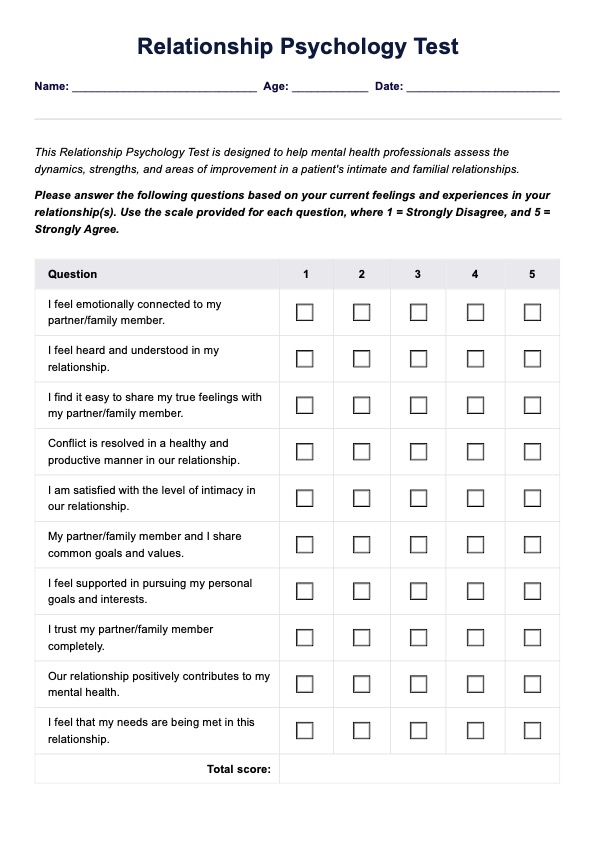The most crucial aspect is the honesty of the responses, as accurate answers provide deeper insights into the relationship's dynamics and areas needing improvement.

Relationship Psychology Test
Explore our Relationship Psychology Test Template designed for therapists to assess and strengthen client relationships. Download your free template now.
Use Template
Relationship Psychology Test Template
Commonly asked questions
Relationships are central to psychological well-being, affecting mental health, happiness, and personal growth.
Psychology offers tools and strategies to understand and improve communication, resolve conflicts, and strengthen emotional connections in relationships.
EHR and practice management software
Get started for free
*No credit card required
Free
$0/usd
Unlimited clients
Telehealth
1GB of storage
Client portal text
Automated billing and online payments











